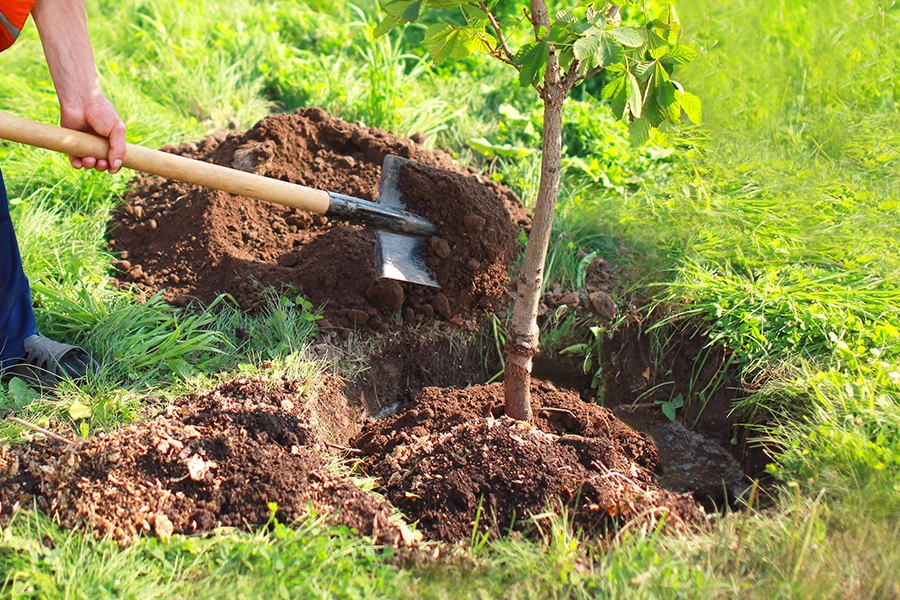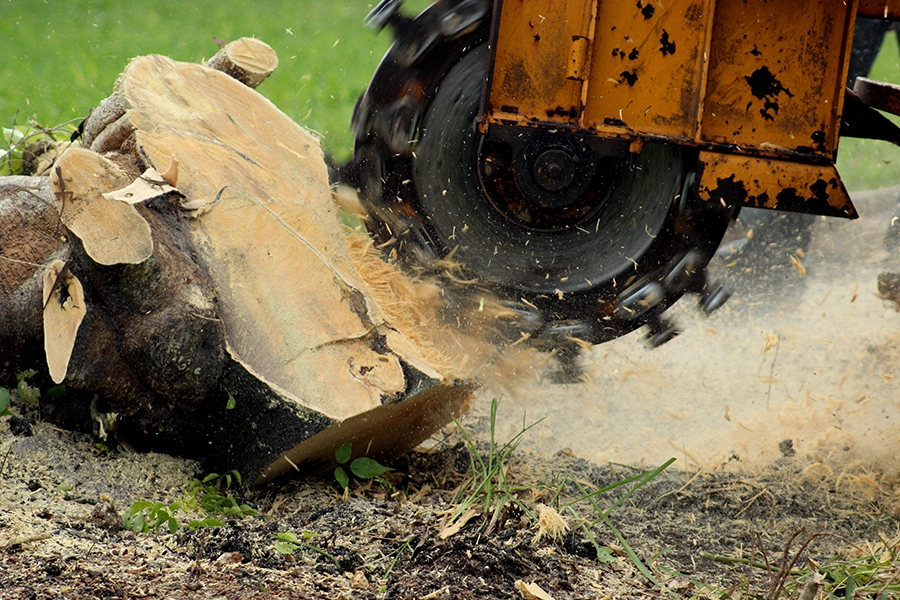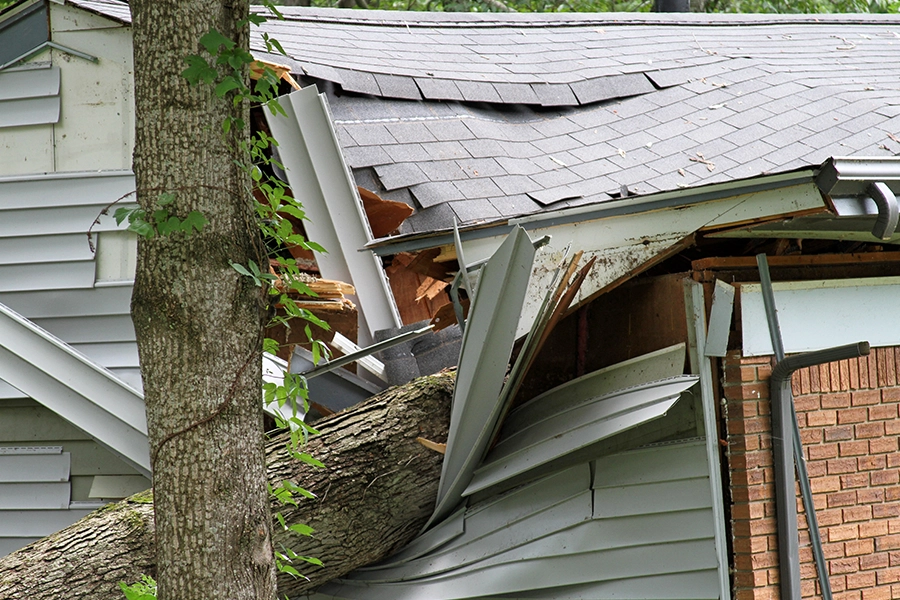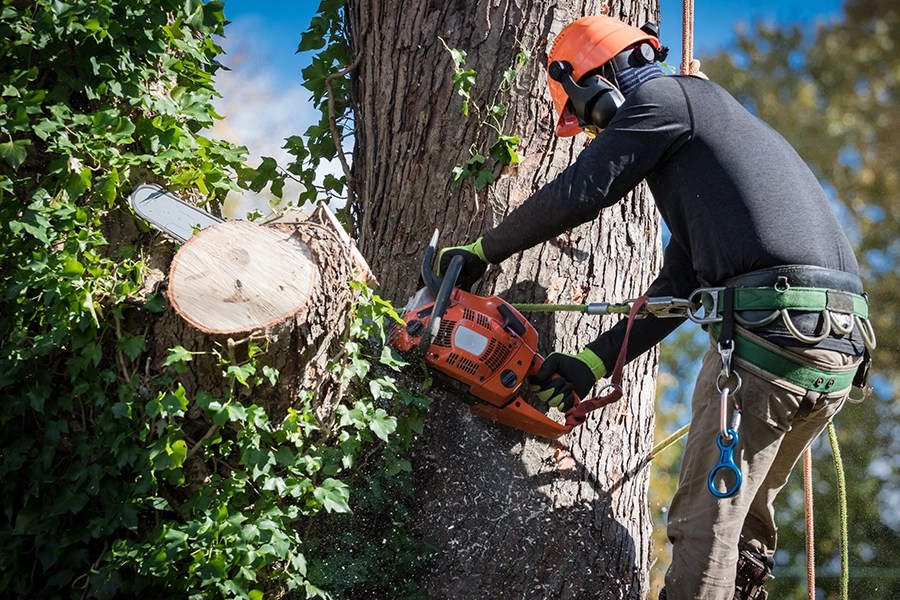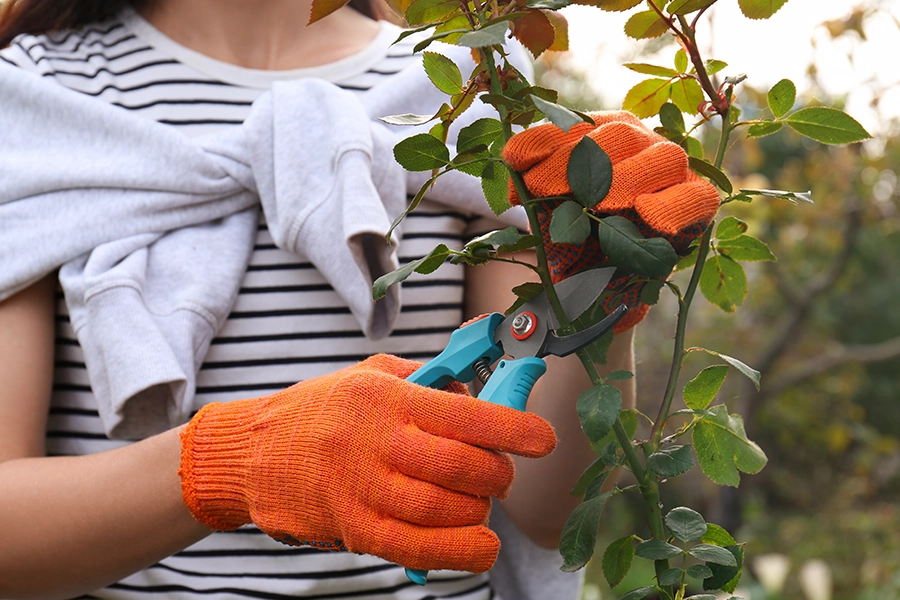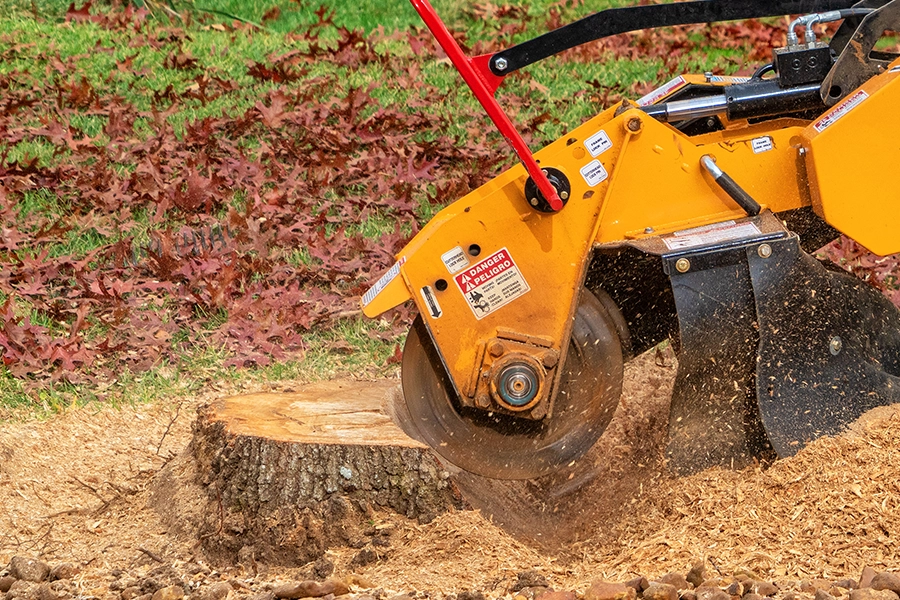As stewards of our environment, incorporating eco-friendly practices into tree care not only preserves the health of your trees but also contributes to a sustainable and thriving ecosystem. A-Unlimited Tree Service in Madison County, IL, is committed to promoting green practices that prioritize the well-being of both your trees and the environment. In this blog, we’ll explore essential eco-friendly tree care tips that go beyond traditional methods, emphasizing sustainability and long-term ecological benefits. Let’s delve into these green practices, empowering homeowners to make environmentally conscious choices for the care of their trees.
Green Practice #1: Organic Mulching
Organic mulching stands out as a foundational green practice in tree care. Mulching around the base of your trees with organic materials, such as wood chips or compost, provides numerous benefits. It helps retain soil moisture, suppresses weed growth, regulates soil temperature, and enhances soil fertility. Additionally, organic mulch gradually decomposes, enriching the soil with valuable nutrients. This sustainable approach mimics the natural cycle of forest ecosystems, promoting the health and vitality of your trees while minimizing environmental impact.
Green Practice #2: Water Conservation Techniques
Water is essential for tree health, but it’s crucial to use it wisely. Implementing water conservation techniques, such as drip irrigation or soaker hoses, efficiently directs water to the root zone. This minimizes water waste and ensures that your trees receive adequate hydration. Proper watering practices not only support tree growth but also contribute to overall water conservation, aligning with eco-friendly principles by reducing unnecessary water consumption.
Green Practice #3: Integrated Pest Management (IPM)
Embracing Integrated Pest Management (IPM) is a sustainable approach to controlling pests and diseases in your trees. Rather than relying solely on chemical treatments, IPM incorporates various strategies, including biological controls, cultural practices, and monitoring techniques. By prioritizing biological balance and minimizing the use of synthetic pesticides, IPM preserves the natural predators of pests and helps maintain a healthy and resilient ecosystem within your landscape.
Green Practice #4 Pruning for Health and Structure
Pruning is an essential aspect of tree care, and when done with a focus on health and structure, it becomes a green practice. Proper pruning techniques, such as removing dead or diseased branches and promoting a balanced canopy, contribute to the overall well-being of your trees. A well-structured tree requires less maintenance, reduces the need for excessive pruning in the future, and enhances the tree’s ability to withstand environmental stressors naturally.
Green Practice #5: Soil Health Improvement
Focusing on soil health is fundamental to sustainable tree care. Instead of relying on chemical fertilizers, consider natural methods to improve soil quality. Organic amendments, such as compost and well-decomposed manure, enhance soil structure and provide essential nutrients. By fostering a healthy soil ecosystem, you create an environment that supports the intricate relationships between trees, beneficial microorganisms, and other soil organisms.
Green Practice #6: Sustainable Tree Planting
When adding new trees to your landscape, opt for sustainable tree-planting practices. Choose native species that are well-adapted to the local climate, soil conditions, and ecosystem. Native trees are more resilient and require less maintenance, reducing the need for excessive inputs. Additionally, selecting trees with a diverse range of species contributes to biodiversity, fostering a balanced and thriving ecosystem. For further guidance on what trees will do well on your property and where to plant them, feel free to consult with our experts.
Green Practice #7: Recycling Tree Debris
After tree pruning or removal, recycling tree debris is a green practice that minimizes waste and maximizes resource utilization. Chipped branches and wood can be repurposed as mulch or compost, providing valuable organic matter for your landscape. Recycling tree debris not only reduces the environmental impact of waste disposal but also contributes to a closed-loop system, where the by-products of tree care become beneficial resources for your property.
Green Practice #8: Carbon Sequestration Awareness
Trees play a vital role in carbon sequestration, absorbing carbon dioxide and mitigating climate change. Being aware of your trees’ carbon sequestration potential encourages their preservation and proper care. Supporting mature trees, planting additional trees, and maintaining healthy forests contribute to a positive environmental impact. A-Unlimited Tree Service LLC recognizes the importance of trees in the carbon cycle and encourages homeowners to actively participate in carbon sequestration efforts through responsible tree care practices.
For Professional Expertise, Call A-Unlimited Tree Service LLC Today!
Eco-friendly tree care is a comprehensive approach that not only benefits your trees but also contributes to the well-being of the environment. A-Unlimited Tree Service LLC is dedicated to promoting and implementing these green practices in Madison County, IL. If you seek professional services for your trees, our expert arborists stand ready to assist. By choosing eco-friendly tree care, you not only enhance the beauty of your landscape but also play a role in sustaining the health of our planet. Call 618.667.9885 today, and let’s work together to ensure the longevity and vitality of your trees while preserving the natural balance of our ecosystem.

